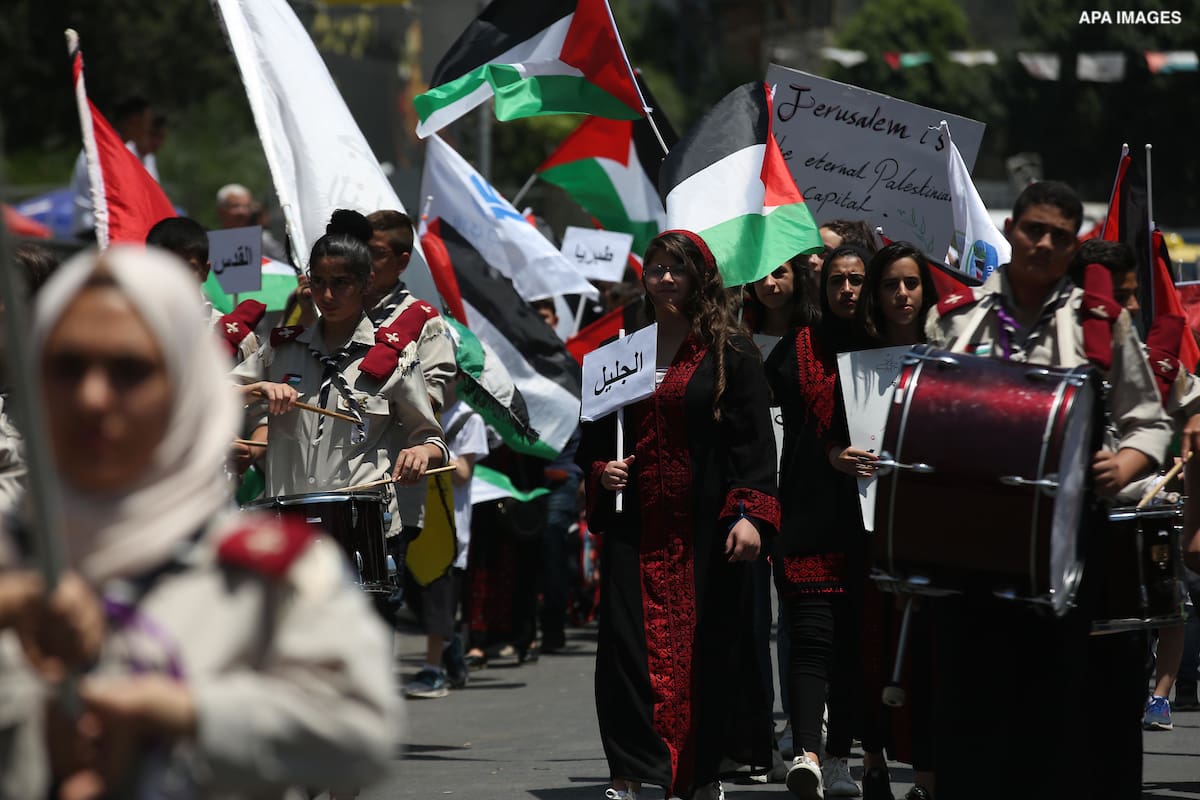
This section examines the social repercussions of the Palestinian Authority’s (PA) collapse, dissolution, or reconfiguration for Palestinians in the West Bank, Gaza, and at large. More emphasis is placed on shorter-term repercussions, as foreseeing the longer term requires different data and approaches.
The collapse of the PA would affect the future of Palestinians in the West Bank, including East Jerusalem, and Gaza to varying degrees at the political, economic, social, and demographic levels. It would also affect Palestinian communities in 1948 territories and in the diaspora. These repercussions could promote, for example, rebuilding the Palestine Liberation Organization (PLO) on new democratic and representative foundations, as well as a new national project.
The PA’s demise would not end the Palestinian national cause. With or without the PA, it is difficult for the Israeli regime to claim a victory for the Zionist project while half of the Palestinian people still reside in their historical homeland and are resisting in one way or another, and while those in the diaspora and exile are committed to their historical narrative and right to return. For example, it is likely that the collapse, dissolution, or reconfiguration of the PA — seen as a corrupt and complicit institution — while the PLO remains in existence, would bolster the Boycott, Divestment and Sanctions (BDS) movement, particularly in the US and Europe, generating new solidarity among some Israeli Jews, Arabs in the region, and others across the globe.
The PA’s dissolution or reconfiguration assumes a decision made by a revived PLO with national legitimacy, as well as Arab and international recognition. This renewal would be based on the premise that the PLO predated and did not originate from the Oslo Accords, like the PA. The PLO has an extensive national and revolutionary record, and still has the authority to decide the fate, role, and functions of the PA. Should the PLO decide to dissolve the PA, a set of measures must be in place to prevent social disintegration in the West Bank and Gaza, and the emergence of localized tribal formations or gangs. It would also be necessary to create structures that preserve the empowerment of Palestinian civil society across the world, as well as foster solidarity among the different constituents of the Palestinian people. Dissolving the PA may also require a transitional phase to set up a national alternative and to provide localized leadership for Palestinians in the West Bank and Gaza; this would prevent the emergence of groups, instigated by local actors or the Israeli regime, that could conflict with national interests and rights.
It would further be necessary to promote the development of representative and inclusive civil society institutions to constitute the grassroots foundations of a revived PLO. These would be essential to fostering linkages among Palestinians from different sectoral, professional, and solidarity backgrounds – all sharing emancipatory and democratic aspirations — as well as to other social justice movements. This does not negate each group’s unique characteristics, needs, current and historical rights, as well as struggle strategy. Rather, these institutions would be fundamentally pluralistic.
Should the PA collapse before the PLO has been revived and before the PA’s functions and institutions have been reconfigured, it would be wise to focus first on addressing the disintegration of society on geographical, tribal, or familial bases. The focus should be on preventing the deterioration of the security situation, which could take the form of gangs seizing control, extorting money, and working for local leaders or as agents of external powers, including the Israeli regime and regional authorities.
It would also be necessary to protect the rights of marginalized groups, such as women, the poor, the elderly, children, the unemployed, and refugees. Indeed, it would be important to empower these groups through the creation of organizations that intersect with gender, class, age, and place of residence. This could draw inspiration from past mobilization, including the popular committees during the First Intifada. These committees enabled citizens to hold steadfast in the face of the Israeli occupation through solidarity and mutual support, in addition to their role organizing various forms of popular resistance.
In fact, it was the First Intifada that restored representation to PLO institutions and mobilized other constituents of Palestinian society to support the popular Palestinian national struggle. It was also what spurred popular, and to some extent formal, Arab and international solidarity. Examples of civil disobedience, popular resistance, and local organized solidarity in modern Palestinian history constitute important lessons from which civil society institutions and political organizations in the West Bank and Gaza, as well as Arab and international solidarity movements, should learn in the event of the PA’s dissolution, whether before or after the PLO’s revival.







